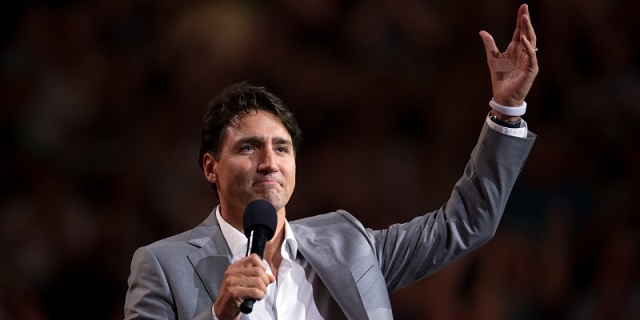Alberta
Could our sports history be … history?

Could our sports history be … history?
What began as a simple question was turned suddenly into a discouraging truth. The Alberta Sports Hall of Fame has not received any support from the provincial government this year and no discussions have been held about when – or if – the money might arrive.
The question was: “What chance is there that the annual banquet (postponed because of COVID-19) will be staged before the end of 2020?” Tracey Kinsella, who became executive director of the Hall last summer, responded that many existing lockdown issues would have to be cleared up, and some funding would be required. Then she pointed out that the Hall of Fame, which sits on the edge of Red Deer and has honoured athletes and sportsmen for decades, has been operating without funds. And she also pointed out that she has had little communication to date with any government representative about the cost of staying in business.
Given those simple facts, it takes no large dose of imagination to see the possibility that the Hall of Fame, which sits on the edge of Red Deer and has honoured athletes and sportsmen for decades, will not exist much longer. Alberta’s annual contribution is a mere $302,000, peanuts in the budget of any provincial government.
Of course, this is not just ANY government. It has bigger problems than most. The United Progressive Conservative government is locked in vital struggles over billions of resource revenue and thousands of jobs. Before the coronavirus interfered, facing a debt level already out of control, the UPC dismantled the Alberta Sports Connection board of governors, which provided years of experience in administration, public service and fund-raising, then oversaw the dismissal of at least one high-ranked staff member who served ASC with integrity for more than 25 years.
Moves to fill those gaps, if any, have been made in silence.
To put the record straight, this reporter spent five years as chair of ASC, the last two under control of an NDP minister so disinterested he once told hundreds of Leduc residents, “you know, of course, that I’m not in politics because I care about sports.” My term ended on schedule, before the UPC was elected.
In times like these, where major issues such as COVID-19 collect almost every available ounce of governmental focus, it is easy to look beyond issues that supposedly don’t matter. But, if provincial history and recognition of many who have contributed is important, some attention must be paid soon.
Kinsella, who has been involved in sport as an administrator and unpaid supporter for years, replaced veteran Donna Hately. She entered with enthusiastic ideas about “investments in the Hall.” Her concept would provide entertainment and education for youngsters while also upgrading the building, completed in 1997.
In recent years, she said, attendance at the annual induction banquet had not been “any kind of money-maker.” Other funds were raised in the annual Hall of Fame golf tournament. “Now, we’re doing whatever is necessary” as she looks toward the future. “I think we can get by at this level for about a year and a half, but it won’t be easy.”
Initially, the Hall of Fame induction banquet was scheduled for May 29. To be recognized whenever a date can be set are four athletes, three builders and two to share the Bell Memorial Award for media excellence, as well as individual Achievement, Pioneer and Legacy Award winners. Click for this year’s inductee’s.
Click here to make a donation to the Alberta Sports Hall of Fame.
Editor’s note: John is an Alberta Hall of Fame member, inducted in 1988 with the Bell Memorial Award for media excellence.
Click to read more of John’s stories.
Todayville has a many stories about the inductees over the past few years. Since 2017, we have produced a video of each inductee. Click here to find some amazing stories.
Alberta
Former senior financial advisor charged with embezzling millions from Red Deer area residents

News release from Alberta RCMP
Former senior financial advisor charged for misappropriating nearly $5 million from clients
On April 4, 2024, the RCMP’s Provincial Financial Crime Team charged a Calgary resident for fraud-related offences after embezzling millions of dollars from his clients while serving as a senior financial advisor.
Following a thorough investigation, the accused is alleged to have fraudulently withdrawn funds from client accounts and deposited them into bank accounts he personally controlled. A total of sixteen victims were identified in the Red Deer area and suffered a combined loss of nearly $5 million.
Marc St. Pierre, 52, a resident of Calgary, was arrested and charged with:
- Fraud over $5,000 contrary to section 380(1)(a) of the Criminal Code; and,
- Theft over $5,000 contrary to section 344(a) of the Criminal Code.
St. Pierre is scheduled to appear in Red Deer Provincial Court on May 14, 2024.
“The ability for financial advisors to leverage their position to conduct frauds and investment scams represents a significant risk to the integrity of Alberta’s financial institutions. The investigation serves as an important reminder for all banking clients to regularly check their accounts for any suspicious activity and to report it to their bank’s fraud prevention team.”
- Sgt. John Lamming, Provincial Financial Crime Team
The Provincial Financial Crime Team is a specialized unit that conducts investigations relating to multi-jurisdictional serious fraud, investments scams and corruption.
Alberta
Political parties will be part of municipal elections in Edmonton and Calgary pilot projects

Strengthening Alberta’s local elections
Alberta’s government is introducing legislation to ensure Albertans can rely on transparent, free and fair elections, and municipally-elected officials have clearer accountability measures.
In a democratic society, Albertans expect their local elections to be free and fair, and their elected officials to be held to account by clear rules that govern their local councils. The Municipal Affairs Statutes Amendment Act proposes amendments to the Local Authorities Election Act (LAEA) and the Municipal Government Act (MGA) to add greater transparency to local election processes and ensure local councils and elected officials continue to remain accountable to the citizens who elected them.
“Our government is committed to strengthening Albertans’ trust in their local governments and the democratic process that elects local leaders. The changes we are making increase transparency for Alberta voters and provide surety their votes will be counted accurately. We know how important local democracy is to Albertans, and we will work with local authorities to protect and enhance the integrity of local elections.”
Local Authorities Election Act
Albertans expect free and fair elections and that’s why it’s important we strengthen the rules that govern local elections. To strengthen public trust in local elections, Alberta’s government will eliminate the use of electronic tabulators and other automated voting machines. All Albertans should be able to trust the methods and results of local elections; requiring all ballots to be counted by hand, clarifying rules and streamlining processes for scrutineers will provide voters greater assurance in the integrity of the results.
All eligible Albertans should be able to vote in local elections without impediment. Alberta’s government will limit the barriers for eligible voters to cast a ballot by expanding the use of special ballots. Currently, special ballots can only be requested for very specific reasons, including physical disability, absence from the municipality, or for municipal election workers. By expanding the use of special ballots, the government is encouraging more voter participation.
Amendments in the Municipal Affairs Statutes Amendment Act would increase transparency in local elections by enabling political parties at the local level. Political parties would be enabled in a pilot project for Edmonton and Calgary. The act will not require candidates to join a political party in order to run for a local or municipal office, but will create the opportunity to do so.
In addition, proposed changes to the Local Authorities Election Act would allow municipalities the option to require criminal record checks for local candidates, thus increasing transparency and trust in candidates who may go on to become elected officials.
Municipal Government Act
The role of an elected official is one with tremendous responsibility and expectations. Changes proposed to the Municipal Government Act (MGA) will strengthen the accountability of locally elected officials and councils. These include requiring mandatory orientation training for councillors, allowing elected officials to recuse themselves for real or perceived conflicts of interest without third-party review and requiring a councillor’s seat to become vacant upon disqualification.
If passed, the Municipal Affairs Statutes Amendment Act will also unlock new tools to build affordable and attainable housing across Alberta. Proposed amendments under the MGA would also create more options for municipalities to accelerate housing developments in their communities. Options include:
- Exempting non-profit, subsidized affordable housing from both municipal and education property taxes;
- Requiring municipalities to offer digital participation for public hearings about planning and development, and restricting municipalities from holding extra public hearings that are not already required by legislation; and
- Enabling municipalities to offer multi-year residential property tax exemptions.
Municipal Affairs will engage municipalities and other partners over the coming months to hear perspectives and gather feedback to help develop regulations.
Quick facts
- The LAEA establishes the framework for the conduct of elections in Alberta municipalities, school divisions, irrigation districts and Metis Settlements.
- The MGA establishes the rules governing the conduct of local elected officials once on council, as well as the overall administration and operation of municipal authorities in Alberta, including any policy those authorities may wish to implement.
Related information
-

 Business1 day ago
Business1 day agoDon’t be fooled by high-speed rail
-

 Addictions1 day ago
Addictions1 day agoBritish Columbia should allow addicts to possess even more drugs, federal report suggests
-

 Business1 day ago
Business1 day agoUN plastics plans are unscientific and unrealistic
-

 Alberta1 day ago
Alberta1 day agoAlberta rejects unconstitutional cap on plastic production
-

 Censorship Industrial Complex1 day ago
Censorship Industrial Complex1 day agoAustralian politicians attack Elon Musk for refusing to remove video of Orthodox bishop’s stabbing
-

 Also Interesting1 day ago
Also Interesting1 day agoIs the Anger Toward Fiat Currency Justified?
-

 Alberta1 day ago
Alberta1 day agoActivity-Based Hospital Funding in Alberta: Insights from Quebec and Australia
-

 Fraser Institute1 day ago
Fraser Institute1 day agoCanadians should decide what to do with their money—not politicians and bureaucrats






